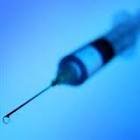Studies have shown that vaccine-induced T cell responses are able to control the replication of HIV. For this reason there has been a great push for the development of T cell–based HIV/SIV vaccines. However, vaccine research has focused on improving the induction of desired immune responses, but little is understood of unwanted induction by vaccines of cells that counteract the vaccine’s effectiveness. This study therefore looked at the use of molecular adjuvants that are used to optimize vaccine responses. Using a regimen of peptide priming followed by a modified vaccinia Ankara (MVA) boost in a nonhuman primate model, the study found that an SIV vaccine incorporating molecular adjuvants mediated partial protection against rectal SIVmac251 challenges. They then went on to find that animals treated with vaccine and multiple adjuvants exhibited a reduced viral load (VL) compared with those treated with vaccine only. Unexpectedly they also found that animals treated with adjuvant alone had reduced VLs that were comparable to or better than those of the vaccine-treated group. With VL reduction being greatest in animals with the MHC class I allele Mamu-A*01 that were treated with adjuvant only and was found to be mainly CD8+ T cell dependent. In addition the VL set point was associated with expansion of a myeloid cell population phenotypically similar to myeloid-derived suppressor cells (MDSCs) that suppressed induced T cell responses, thereby resulting in loss of protection. MDSC expansion was shown to occur in animals that were vaccinated but was not observed in the adjuvant-only group. Indicating that vaccine-induced MDSCs are able to inhibit protective cellular immunity. Thus a critical step in effective vaccine development may be the prevention of MDSC induction.












